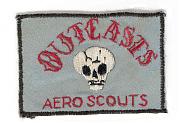Yet the casualtiy comparison I made above applies for post-war figures as well. All casualties in his theatre would have been considered under his command, beacause he was the southwest pacific's "supreme" commander, whether those casualties occured on Austrailian or American troops.
One could also make the same argument in reverse, that Nimitz was given freedom because of MacArthur's moves in New Guinea and further north. A more balanced review would conclude that the two drives were complimentary (which they were designed to be, by the way) and each derived benefits from the other.MacArthur could also have the success he did thanks to the parallel campaign in the Central Pacific conducted by Nimitz and the massive US submarine campaign that practically destroyed the Japanese ability to move troops and supplies. Nimitz' moves kept the Japanese high command constantly guessing as to where a blow might fall, and the submarine campaign crippled their ability to respond to any shift on the part of the allies.










Bookmarks